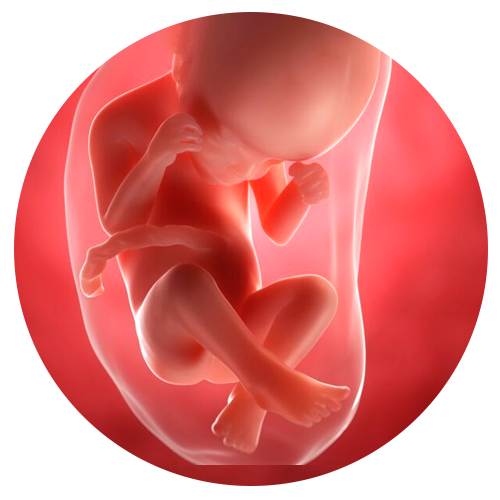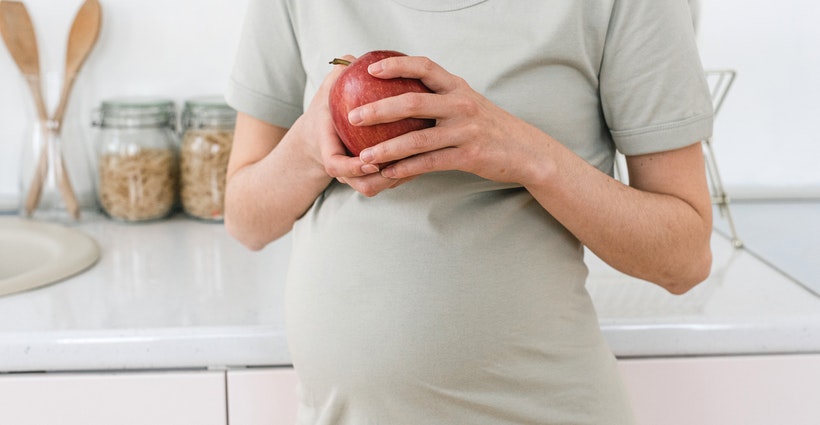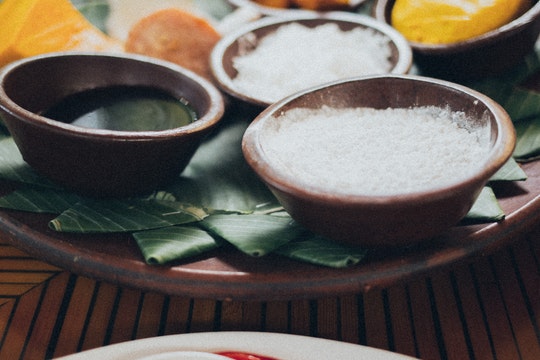24 weeks pregnant: Pregnancy Symptoms & Baby Development
Find out what to expect from every week of your pregnancy.
24 weeks pregnant is how many months?
Month 6 (Trimester 2)
Baby development at 24 week
Diet & nutrition

Pregnancy at 24 weeks
In week 24 of pregnancy, your baby is around 21cm long from the crown of its head to its bottom, roughly the same size as an ear of corn, only heavier. It should weigh around 600g.
Your baby is pretty much complete now, if a little on the skinny side. He or she will continue to plump out over the coming weeks. Your baby also now has all their facial features, including eyebrows and eyelashes – they may even have some wisps of hair growing.
A substance called ‘surfactant’ is appearing inside your baby’s lungs. It helps keep the tiny air sacs in his or her lungs (alveoli) open. Your baby has been practicing breathing since around week 17 so, if they were to arrive prematurely, they’d have a good chance of surviving and breathing without the aid of a neonatal unit.
Your baby will become a little less acrobatic due to their size. That said, they still have a tactile relationship with their surroundings and you’ll continue to feel, and even see, your baby move, roll, kick and stretch.


Pregnancy symptoms at 24 weeks
Braxton-Hicks contractions
Headaches
Breast tenderness
Stretch marks
Swollen ankles, hands and feet
Your body holds more water while you’re pregnant, so if you stand for too long gravity will take a toll and send the water to your ankles, hands and feet. Put your feet up – right up: prop them up so they’re higher than your heart for an hour each day.
Indigestion and heartburn
You can think of iodine as fuel for your baby’s brain as studies have shown it can increase a baby’s IQ11, and even lead to improved lifelong well being.
However, mild iodine deficiency may be common among and pregnant women, and research from the University of Surrey and University of Bristol suggests that even mild pregnancy iodine deficiency may be associated with poorer cognitive function.
Thankfully, most mum-to-be can get enough iodine from a well-balanced diet. White fish is the richest natural source, and dairy products including yogurt and cow’s milk are also rich in iodine.
However, iodine from dairy produce varies from season to season, which can affect how much iodine is in your diet. Milk produced in winter, when cows are fed on winter feed rations, contains more iodine. During summer, lower levels have been measured
Speak with your doctor or midwife about taking an iodine supplement. If you’re already getting enough iodine in a well-balanced diet, then it’s unlikely you’ll need a supplement, and too much iodine can be harmful to your baby.
Because the best sources of iodine are animal-based, vegetarians and vegans may be at a higher risk of deficiency.

THE SCIENCE BEHIND IODINE
Powered by Nutricia
It’s easy to feel confused by iodine. On one hand, mild to moderate deficiency can lead to poor cognitive function in a baby. On the other hand, too much iodine is also bad for you and your baby. It’s a delicate balancing act.
Your body needs iodine to make thyroid hormones, which influence normal cell function and bodily processes such as your heart rate and metabolism. During pregnancy, your baby’s cells also rely on your iodine intake, including the cells in their rapidly developing brain.
All women need at least 0.14mg of iodine a day. The World Health Organisation suggests pregnant women take 0.25mg daily. If you’re worried about your iodine levels, speak to your doctor or midwife who may suggest taking supplements.
